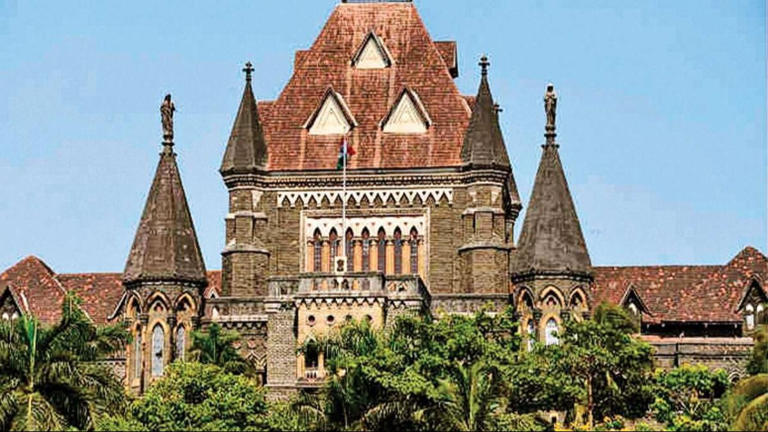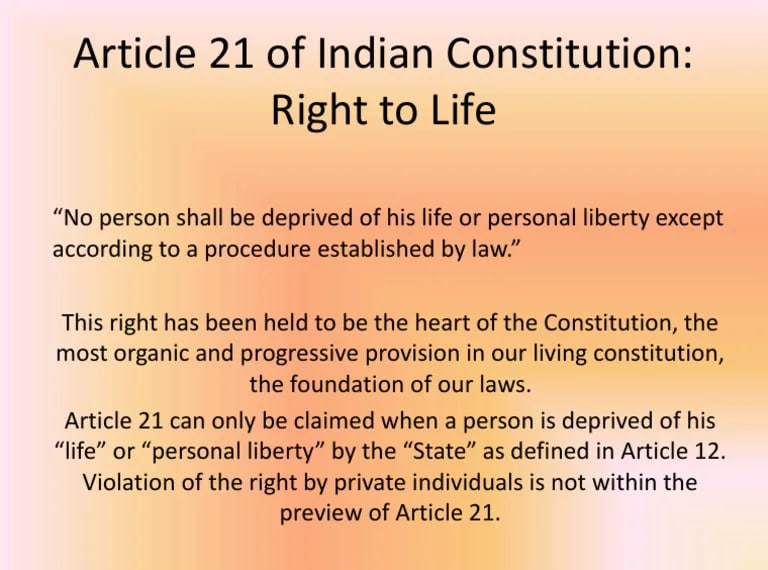Description

Copyright infringement not intended
Picture Courtesy: https://www.msn.com/en-in/news/India/right-to-sleep-basic-human-requirement-can-t-violate-it-court-tells-ed/ar-BB1lGdUP
Context: The Bombay High Court upheld the right to sleep as a basic Human Right under Article 21, criticising the Enforcement Directorate for questioning a senior citizen overnight.
Details
- The Bombay High Court's recent statement on the right to sleep as a Fundamental Human Right, particularly in the context of questioning senior citizens by law enforcement agencies during late hours, highlights important considerations regarding individual rights and dignity.
Case Context - Senior Citizen's Plea
- The High Court's remarks were made during the consideration of a plea filed by a 64-year-old individual, who challenged the manner in which he was interrogated by the Enforcement Directorate (ED) in a money laundering case.
Criticism of Questioning at Late Hours
- The High Court criticised the ED for questioning the person throughout the night.
- The court highlighted that statements should ideally be recorded during daytime or early hours when a person's cognitive abilities are not compromised due to sleep deprivation.
- The court emphasised the need for respecting the physiological and psychological well-being of individuals, particularly senior citizens, during legal proceedings.
|
Respecting Human Dignity and Rights
The High Court's stance underscores the importance of upholding human dignity and respecting individual rights, including the right to sleep, in the course of legal proceedings. This approach aligns with broader principles of ensuring fairness and decency in law enforcement practices.
|
Legal Basis - Article 21 of the Constitution
- The Bombay High Court referred to Article 21 of the Indian Constitution, which guarantees the right to life and personal liberty, stating that this encompasses the right to sleep with dignity. This constitutional provision is fundamental to protecting the basic human rights of individuals.
- In 2012, the Supreme Court recognized sleep as a fundamental right. The Court extended the scope of Article 21 to include the right to sleep peacefully. This decision affirmed that sleep is essential for maintaining the delicate balance of health necessary for survival.
- The Supreme Court highlighted that sleep is not merely a luxury but a necessity for human existence. Disruption of sleep can lead to various health issues and impact overall well-being, affecting cognitive functions and physical health.
|
Impact of Lack of Sleep on Health and Cognition
●The High Court emphasised that lack of sleep can significantly affect a person's health and cognitive abilities. Sleep deprivation can impair mental faculties and cognitive skills, potentially compromising the ability of individuals to effectively participate in legal proceedings.
|

Landmark cases that contributed to the recognition of the right to sleep as a fundamental right under Article 21 of the Constitution in India include:
Sayeed Maqsood Ali v/s State of Madhya Pradesh (2001)
- In this case, the Madhya Pradesh High Court held that every citizen is entitled, under Article 21 of the Constitution, to live in a decent environment and has the right to sleep peacefully at night.
- The judgement emphasised the importance of a peaceful sleeping environment as an essential aspect of the right to life and personal liberty.
Re-Ramlila Maidan Incident v/s Home Secretary (2012)
- This case refers to the incident where the police conducted a midnight crackdown on a gathering led by Baba Ramdev at Ramlila Maidan in Delhi.
- The Supreme Court ruled that sound sleep is associated with sound health, which is an important part of Article 21 of the Constitution. The Court recognized that the right to sleep peacefully is an unavoidable right protected by the Indian Constitution.
Conclusion
- The Bombay High Court's decision regarding the right to sleep as a fundamental Human Right, protected under Article 21 of the Constitution, reflects a broader commitment to upholding individual dignity and rights within the framework of legal proceedings. This approach seeks to ensure that investigative procedures are conducted in a manner that respects the well-being and cognitive abilities of individuals, particularly vulnerable groups such as senior citizens.
Must Read Articles:
Enforcement Directorate
Source:
Business Today
|
PRACTICE QUESTION
Q. Which landmark Supreme Court case established that the right to life under Article 21 includes the right to live with dignity?
A) Kesavananda Bharati v/s State of Kerala
B) Maneka Gandhi v/s Union of India
C) Olga Tellis v/s Bombay Municipal Corporation
D) M.C. Mehta v/s Union of India
Answer: B
|
















